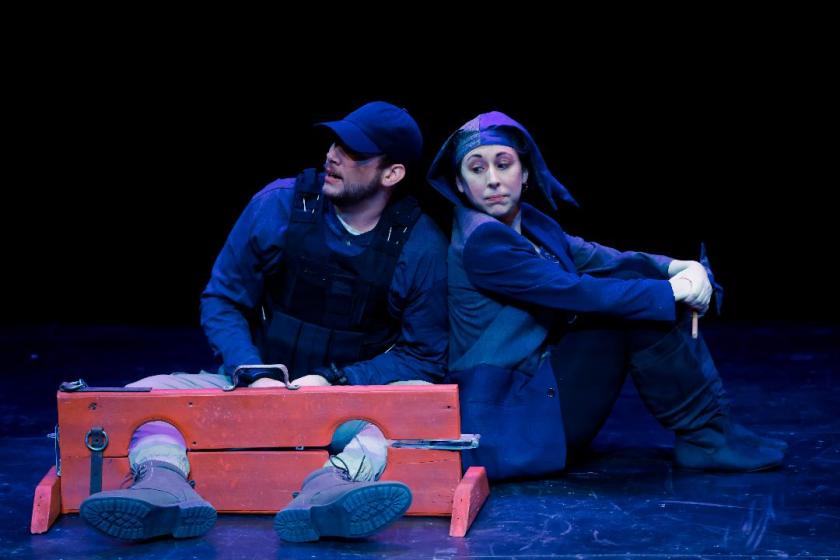
King Lear commences with a ceremony. Lear is growing long in the tooth, and weary of managing his virtually endless territory. Roughly, it is divided into three parcels of land. Subsequently, his three daughters: Goneril, Regan and Cordelia have been summoned to express the extent of their adulation. This will affect his final decision (there and then) as to who gets what. Usually this kind of allotment is declared posthumously. Perhaps Lear could use some recognition and show of affection from his progeny. Goneril and Regan step into the limelight (each in her turn) and delivers her shtick.
Cordelia, however, takes a different approach. I love you as much as any daughter should. No more, no less. She might have said something like: I will always be your daughter, and I cherish that. We ponder which is more egregious. The crassness of a love contest, or Cordelia’s choice of words. Perhaps Cordelia refuses to lay it on thick, wanting no part of this charade. Lear is gobsmacked. Utterly enraged and heartbroken. He splits his kingdom into two parts, for Regan and Goneril, disowns Cordelia and kicks her to the curb.
Next the two elder sisters enact a coup d’etat, with the help of their husbands. They overthrow Lear, leaving him to wander, wounded in despair. Court jesters speak truth to monarchs, disguising their painful observations in the veneer of satire. Lear’s Fool, capering and singing and sneaking in the jabs, does her part to help the other shoe drop. Cordelia raises an army (she, too is married) coming to the rescue of her bedraggled, despondent dad. Throughout his ordeal, Lear’s been stripped of all dignity, humbled beyond imagining, battered by the elements, alone and lonely. When Cordelia appears, overcome by their great love, they embrace and weep and forgive. It’s a deeply touching moment.
At the hub of this broken wheel, waits the question. What was King Lear thinking? Do great men stage tributes to themselves? Treat love like a quantifiable asset? Has vanity eclipsed reason? Or his humanity? Surely pitting his daughters against each other, was grotesque and unthinkable. There’s strong indication that Cordelia is the favorite, but why shame Regan and Goneril?
Throughout King Lear, the familial dangers of implosion, vexation and resentment, come up over and again. The brothers Edgar and Edmund, alienated by Edmund’s illegitimacy. They might have been great friends, but Edmund can’t see past it. Goneril and Regan annihilating, punishing their father. These aren’t squabbles and feuds. This is humiliation, and torture and vindictiveness. It’s as if Lear’s lapse in judgment has brought out the worst in everyone (With a few noteworthy exceptions). As Solomon said: He that troubleth his own house, shall inherit the wind.
Dennis Raveneau has performed in numerous venues, around the Metroplex. His versatility a grace to the audience. His patrician bearing an undeniably perfect fit for King Lear. He doesn’t just act regal, he is. Never haughty, never arrogant, never pompous. Even as he is authoritative, bellicose, commanding, his vulnerability is unmistakable. In the scenes where Lear is reduced to frailty and indigency. Subjected to the caterwauling elements. His peerage mocked by a crown of wildflowers. We, too are brought to our knees. It’s as if the part were written for Raveneau.
Fair Assembly’s crisp, intelligent production, was somber and wrenching. Their new space at The Latino Cultural Center Black Box, felt capacious yet personal. The cast of fifteen (not including ensemble) was striking in their understated mien. Strong emotion, yet cool to the touch. Intuitive and cunning. Whether cruel or caring, clownish or predatory, sharp or clueless, each actor was poised, with their head in the game.
Fair Assembly presented King Lear from August 8th-17th, 2024. Latino Cultural Center: Blackbox. 2600 Live Oak Street, Dallas, TX 75204. 402-730-2708. www.fairassembly.com




